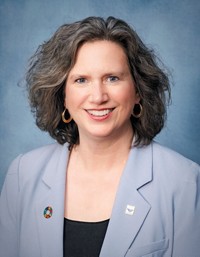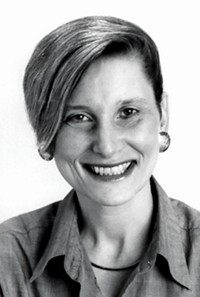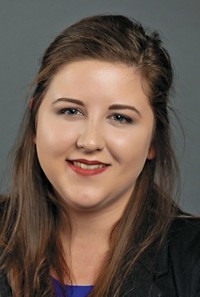Advertisement
Grab your lab coat. Let's get started
Welcome!
Welcome!
Create an account below to get 6 C&EN articles per month, receive newsletters and more - all free.
It seems this is your first time logging in online. Please enter the following information to continue.
As an ACS member you automatically get access to this site. All we need is few more details to create your reading experience.
Not you? Sign in with a different account.
Not you? Sign in with a different account.
ERROR 1
ERROR 1
ERROR 2
ERROR 2
ERROR 2
ERROR 2
ERROR 2
Password and Confirm password must match.
If you have an ACS member number, please enter it here so we can link this account to your membership. (optional)
ERROR 2
ACS values your privacy. By submitting your information, you are gaining access to C&EN and subscribing to our weekly newsletter. We use the information you provide to make your reading experience better, and we will never sell your data to third party members.
Careers
Younger chemists: Get involved!
by Natalie LaFranzo, Chair, ACS Younger Chemists Committee
September 12, 2016
| A version of this story appeared in
Volume 94, Issue 36
If you’re reading this, you’re probably an American Chemical Society member who cares about what’s going on in the field of chemistry. You may be one of the thousands of young or early career members who qualify as a “younger chemist.” You are likely to have opinions, comments, or ideas about chemistry education, the job market, or ACS, but probably don’t know how to have your voice heard.
If you’re this person, I want you to know that your voice can make a difference. Many groups within ACS are eager for younger members to get involved. And ACS governance is not just for senior members of the chemistry community; it’s for everyone. Here are some ways you can get involved in ACS:
Attend an ACS meeting. ACS is made up of three main levels within its governance structure. You’ve got your local section, which every member picks either by their geographic location, or by the local section they wish to be part of. Each local section is part of a region. And then you’ve got the entire membership, which is international. Most local sections have a board that meets regularly, and regional meetings happen annually. There are also two national meetings a year. If you’re not sure where to start, find out where and when your local section and regional meetings will be held, and take part.
Become active in your local section. Once you visit a local section meeting or event, you will find that there are other activities that you may enjoy helping with. Students and early career chemists are highly coveted as volunteers to help with science fairs, chemistry demos, and career days. If you find you’re enjoying these sorts of outreach activities, you may wish to join a specific committee in your local section and become a more regular volunteer. Once you’ve got your feet wet and feel you can commit, there’s no reason not to step into a leadership role. Your passion, perspective, and excitement will be valued by your local section leaders, and you’ll meet great mentors who can help you navigate your career path.
Join and become active in an ACS division. If you enjoy going to national meetings and feel that the programming, content, and interactions are highly valuable to you, then you’ll probably enjoy joining a division and getting involved by volunteering to help organize a symposium or other event.
The two main types of divisions are the following:
▸ technical divisions, such as analytical (ANYL) or inorganic (INOR), and
▸ professional divisions, such as the Small Chemical Business Division (SCHB), Division of Professional Relations (PROF), and Division of Business Development & Management (BMGT).
Divisions offer an excellent way to network and get to know the leaders in your field of interest. While you’re getting involved, don’t forget to check what awards and grants you can take advantage of, such as national meeting travel awards.
Join an ACS committee. You can get involved in committees on a local or national level. For example, the Younger Chemists Committee (YCC) exists on both levels. We have a national YCC, which comprises members and associates who pledge their service for one to three years. There are also local section YCCs, where members volunteer to plan events for younger chemists in their local communities. If you don’t have an established YCC in your local section, we can help you start one with our starter kit and a small grant.
The national YCC serves as a unifier for multiple groups within ACS. Our constituency spans undergraduate students, graduate students, postdoctoral scholars, and early career chemists. YCC is eager to unite, advocate for, and provide resources for all of these young chemists. We offer programming, awards, social activities, international exchanges, and more.
Participate in #CatalyzeTheVote. YCC wants to amplify the voices of young and early career chemists in the ACS national election. Getting involved allows us to ask questions on topics relevant to our generation and career levels.
YCC is hosting a live Virtual Town Hall on Sept. 29 from 7:30–9 PM ET. Register at bitly.com/catalyzethevote and send your questions ahead of time by tweeting us (@ycc_acs).
During the election, we’ll host an official CtV Voting Day, where young chemists unite and vote together. Participants who post using the hashtag #CatalyzeTheVote on this date will be eligible to win one of our great prizes.
What’s next? Now that you’ve learned where you can fit in, what questions do you have? Perhaps you’re not sure volunteering is worth your time, or maybe you don’t think you have time to volunteer. From personal experience, I can tell you that getting involved in ACS offers valuable opportunities for networking and developing your leadership skills. Plus, you’ll make friends who are as passionate about chemistry as you are.
For more information or to share your ideas, reach out to us at info@ycc-acs.org, or visit our website at ycc.sites.acs.org. Don’t forget to follow us on Facebook (facebook.com/YCC.ACS) and Twitter.
Views expressed on this page are those of the author and not necessarily those of ACS.






Join the conversation
Contact the reporter
Submit a Letter to the Editor for publication
Engage with us on Twitter